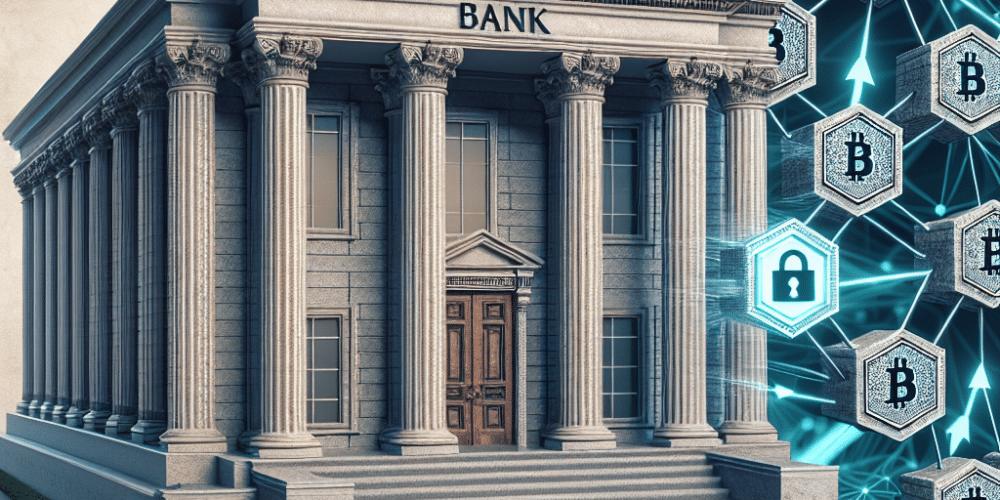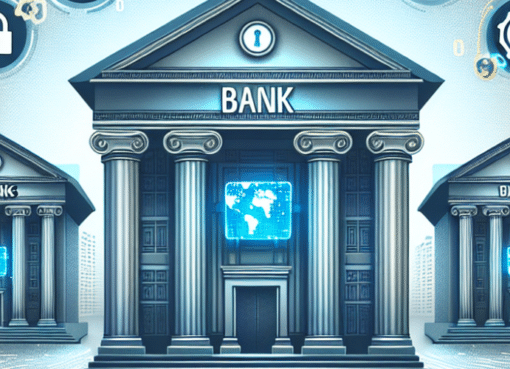In a groundbreaking development for the financial industry, several leading global banks have announced the adoption of blockchain technology to revolutionize their operations, enhance security, and increase transaction efficiency. This move marks a significant shift in the traditional banking sector as institutions now pivot towards more transparent, decentralized solutions that blockchain technology offers.
The initiative is spearheaded by the Global Banking Blockchain Consortium (GBBC), which includes banking giants such as Bank of America, HSBC, and Deutsche Bank among its members. The GBBC has been at the forefront of exploring blockchain applications in finance and has finally rolled out its first phase of technology implementation this month.
Revolutionizing Financial Transactions
At the core of this initiative is the desire to overhaul the current financial transaction framework, which is often seen as cumbersome, slow, and susceptible to fraud. Blockchain technology, which facilitates the movement of digital information in a secure and transparent manner, promises to address these issues head-on.
One of the primary applications of blockchain in these banks will be in cross-border transactions—a field notorious for its layers of complexity and potential for security breaches. Blockchain’s distributed ledger technology ensures that each transaction is recorded identically in multiple locations, updating all records simultaneously. This not only speeds up transaction times drastically but also provides an unprecedented level of security and transparency.
Enhanced Customer Verification Processes
Another critical application of the blockchain by these banks is in the area of customer verification and due diligence. The KYC (Know Your Customer) process, essential for combating fraud and complying with anti-money laundering laws, can be significantly streamlined with blockchain. By creating a decentralized database of verified customers, banks can reduce redundancy and the need for repetitive documentation, thereby enhancing customer experience and reducing operational costs.
Impact on Banking Efficiency
Experts predict that the integration of blockchain into everyday banking operations could lead to substantial cost savings. According to a report by Santander InnoVentures, blockchain technology could reduce annual banking infrastructure costs by up to $20 billion by 2022. Additionally, transaction speeds are expected to increase, with cross-border payments that typically take days being reduced to mere minutes or even seconds.
Skepticism and Challenges
Despite these promising developments, the transition to blockchain is not devoid of challenges and skepticism. Concerns about the scalability of the technology, regulatory compliance, and the need for a robust cybersecurity framework are prominent among detractors. Moreover, there is a considerable amount of inertia within the banking industry when it comes to adopting new technologies, rooted in concerns over security and operational disruptions.
Future Prospects
Looking ahead, the GBBC plans to extend blockchain solutions beyond transaction management and verification processes. Future applications could include complex contract management via smart contracts, enhanced asset management, and even integration into investment banking practices. The consortium is also actively working with regulatory bodies to ensure that the deployment of blockchain technology complies with existing legal frameworks and banking regulations.
In conclusion, the adoption of blockchain technology by major banks under the GBBC’s guidance is a significant step forward for the financial industry. This development not only promises to enhance the security and efficiency of banking operations but also sets a new standard for the incorporation of technology in traditional banking. As the project unfolds, the industry will keenly watch this integration, which could very well dictate the future trajectory of global banking practices.
This shift to blockchain may be pivotal, serving as a beacon for other sectors to follow as the benefits and potential of blockchain technology become increasingly apparent across various industries.




